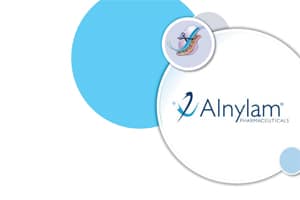 The ink has barely dried on the approvals of two PCSK9 inhibitors from Amgen and Sanofi, but gene silencing specialist Alnylam claims to have an improved candidate in its pipeline with blockbuster potential.
The ink has barely dried on the approvals of two PCSK9 inhibitors from Amgen and Sanofi, but gene silencing specialist Alnylam claims to have an improved candidate in its pipeline with blockbuster potential.
Amgen’s Repatha (evolocumab) and Sanofi/Regeneron’s Praluent (alirocumab) may be hitting the market first, but Alnylam maintains the early-stage subcutaneous version of the drug, ALN-PCSsc, could be at least as effective, and require dosing just one every three or six months.
The results of a phase I trial reported at the European Society of Cardiology (ESC) meeting in London over the weekend reveal that the drug reduced low-density lipoprotein-cholesterol (LDL-c) by 63% to 83%, which Alnylam said was comparable to its rivals, with the effect lasting for more than 140 days with a single dose.
As they are large antibody molecules, Repatha and Praluent must be injected every two or four weeks, depending on the indication, and Alnylam maintains that a reduced injection frequency could allow ALN-PCSsc to eventually lead the market, despite trailing its rivals by several years.
The gene silencing specialist said in a statement: “In contrast to anti-PCSK9 antibodies … that bind to PCSK9 in blood, ALN-PCSsc is a first-in-class investigational medicine that acts by turning off PCSK9 synthesis in the liver.”
Its chief medical officer Akshay Vaishnaw added: “We believe that these results support a quarterly, and possibly bi-annual, low volume subcutaneous dose regimen for further development.”
The company has previously indicated that even a once-monthly dosing would give it a “highly competitive position” versus current PCSK9 inhibitors, which are predicted to quickly become blockbuster drugs thanks to their ability to help more patients achieve cholesterol-lowering targets and pricing of up to $15,000 a year.
The success in the ongoing phase I trial means that clinical development of ALN-PCS is now taken over by The Medicines Company (TMC), which licensed rights to the drug in a $205m deal announced in 2013 including $25m upfront.
A new clinical trials programme – dubbed ORION – will kick off with an initial phase II dose-ranging study that is expected to start by the end of the year. The two companies predict that phase III clinical trials will begin in 2017 and will include a comparative study of ALN-PCSsc with anti-PCSK9 antibodies.
The phase I data is the first solid read-out for the intended clinical formulation of the drug. Prior studies included tests of an intravenous formulation (ALN-PSCiv) in humans and the subcutaneous version in non-human primates.




